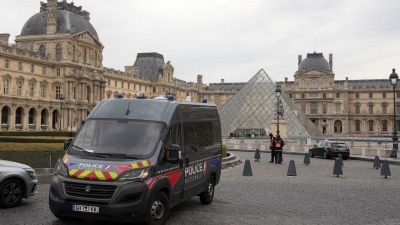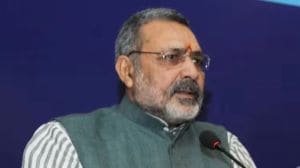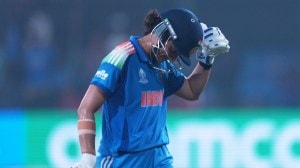Father of the bomb drags in the General
Pakistan's top nuclear scientist, Abdul Qadeer Khan, has told investigators that he helped North Korea design and equip facilities for makin...

Pakistan’s top nuclear scientist, Abdul Qadeer Khan, has told investigators that he helped North Korea design and equip facilities for making weapons-grade uranium with the knowledge of senior military commanders, including General Pervez Musharraf, Pakistan’s president, according to a friend of Khan and a senior Pakistani investigator.
Khan has reportedly also told investigators that General Mirza Aslam Beg, the Pakistani army chief of staff from 1988 to 1991, was aware of the assistance Khan was providing to Iran’s nuclear programme and that two other army chiefs, in addition to Musharraf, knew and approved of his efforts on behalf of North Korea. Khan’s assertions of high-level army involvement came in the course of a two-month probe into allegations that he and other Pakistani nuclear scientists made millions of dollars from the sale of equipment and expertise to Iran, Libya and North Korea. They contradict repeated contentions by Musharraf and other senior officials that Khan and at least one other scientist, Mohammed Farooq, acted out of greed and in violation of long-standing government policy that bars export of nuclear weapons technology to any foreign country.
In conversations with investigators, Khan urged them to question the former army commanders and Musharraf, asserting that ‘‘no debriefing is complete unless you bring every one of them here and debrief us together’’.
On the basis of Khan’s claims, Beg and another former army chief of staff, General Jehangir Karamat, who occupied the post from 1996 to 1998, have been questioned by investigators in recent days, but both have denied any knowledge of the transactions, according to a senior Pakistani military officer who spoke on condition of anonymity.
General Shaukat Sultan, Pakistan’s chief military spokesman, declined to comment on the specifics of the allegations but asserted that ‘‘General Pervez Musharraf neither authorised such transfers nor was involved in any way with such deeds, even before he was president’’. Beg and Karamat could not be reached for comment.
Khan and other senior scientists and officials at Khan Research Laboratories, the uranium-enrichment facility Khan founded in 1976, have been under investigation since November, when the IAE A presented Pakistan with evidence that its centrifuge designs had turned up in Iran.
|
Military’s denial
|
|||||
| • The Pakistani military has denied a New York Times report quoting US officials as saying that nuclear aid flowed to North Korea until 2002 and to Libya last year, a charge embarrassing for President Musharraf. ‘‘The moment President Musharraf came to power, he put in safeguards,’’ the military spokesman told Reuters. | |||||
The flamboyant European-trained metallurgist, who is 67, became a national hero in Pakistan after the country detonated its first nuclear device in 1998. A senior Pakistani military officer said Khan had signed a 12-page confession on Friday in which he admitted to providing Iran, Libya and North Korea technical assistance and components for making high-speed centrifuges used to produce enriched uranium, a key ingredient for a nuclear bomb.
Lt Gen Khalid Kidwai, commander of Pakistan’s Strategic Planning and Development Cell, described Khan as the mastermind of an elaborate and wholly unauthorised smuggling network involving chartered cargo flights, clandestine overseas meetings and a Malaysian factory that reconditioned centrifuge parts discarded from Pakistan’s nuclear programme for sale to foreign clients, according to a journalist who attended Kidwai’s briefing. The technology transfers began in 1989 and were brokered by a network of middlemen, including three German businessmen and a Sri Lankan.
Khan has also asserted that Musharraf had to have been aware of the agreement with North Korea because he took over responsibility for the Ghauri missile programme when he became army chief of staff in October 1998.
In Kidwai’s account to journalists, senior military commanders did not get wind of Khan’s nuclear dealings with North Korea until 2000, when the ISI conducted a raid on an aircraft that the laboratory had chartered for a planned flight to North Korea. Although a search of the aircraft turned up no evidence, authorities were sufficiently concerned that they warned Khan against pursuing any clandestine trade with North Korea, Kidwai told the journalists.
— (LAT-WP)





- 01
- 02
- 03
- 04
- 05


























